Working and retired teachers have joined parents of students in protests across Iran to demand justice for the poisoning of hundreds of schoolgirls and call on the authorities to ensure the safety of schools.
Police used pepper spray and force to disperse gatherings in several cities, including Shiraz, Isfahan, Mashaad and Rasht, according to reports. A number of protesters were reportedly beaten and detained.
Angry demonstrators also gathered in the streets of Karaj, Shiraz, Ahvaz, Sanandaj, Bandar Anzali, Marivan, Saqqez, Kashmer, Ardabil, Lahijan, Aliguderz, Hersin and Babol.
The protesters responded to a call by the Coordination Council of Teachers' Trade Union for nationwide rallies, sit-ins and strikes to protest over the "serial poisoning of female students and insecurity in schools," the "collapse” of the national currency, academic suspensions for students who have been arrested over the past months and the release of all jailed teachers.
The rallies come as the Islamic Republic has faced more than five months of protests demanding fundamental economic, social and political reforms. The wave of public anger was triggered by the September death of a 22-year-old woman, Mahsa Amini, in the custody of morality police.
Some Iranians have suggested that the poisonings could be an attempt to force the closure of girls’ schools or a retaliation for students and women leading anti-government demonstrations sparked by Amini’s death.
While Iranian political figures and activists have described the wave of poisonings as "chemical" and "biological" attacks, officials have only recently admitted there may be a problem.
Mohammed Hassan Asefari, a lawmaker investigating the poisonings, has told the semiofficial ISNA news agency that as many as 5,000 students have complained of being sickened in 230 schools across 25 provinces.
Deputy Interior Minister Majid Mirahmadi told Iranian state TV on March 7 that several people were arrested in five different provinces over the poisonings. Mirahmadi did not give a precise number for those detained and where exactly the arrests were made.
The previous day, Supreme Leader Ali Khamenei called the poisonings an "unforgivable crime” and said that the perpetrators “should be severely punished.”
On March 7 in Mashhad, the protestors demanded the resignation of Education Minister Yousef Nouri, shouting "Unworthy minister, resign, resign." The minister has downplayed the incidents in Iranian schools, attributing them to "childish mischief."
A teacher told IranWire that pepper spray was fired at the crowd and that several participants were beaten.
“Although our colleagues had gathered on the sidewalk and there was no problem with street traffic, police announced after a while that the gathering was illegal because it was causing traffic problems,” the protester said.
“After this announcement was made with a loudspeaker, they immediately attacked the teachers and dispersed the crowd with pepper spray,” the witness added.
In Rasht, riot police and plainclothes officers used tear gas and violently attacked protesters gathered outside the General Directorate of Education of Gilan province, according to a video obtained from the rally.
Two union members, Mohammad Ali Zahamtkesh and Gholamreza Gholami, were arrested by plainclothes agents during a protest in Shiraz.
Protesters also gathered around Tehran’s Jumhori Street, where the parliament is located, amid a strong security presence.
Determining what’s going on in Iran has been difficult due to an ongoing crackdown by the authorities on the media. Dozens of journalists have been detained, threatened and had their equipment confiscated since the start of the protests in September.
Tehran chief prosecutor Ali Salehi said the authorities had filed charges against journalists, including the editors at the reformist newspapers Hammihan and Shargh, which have led reporting on the poisonings, the judiciary’s Mizan news agency reported.
Roidad 24 news website, activists and others also face charges over allegedly spreading “unreal claims and totally false” statements about the attacks, Salehi said.
visit the accountability section
In this section of Iran Wire, you can contact the officials and launch your campaign for various problems




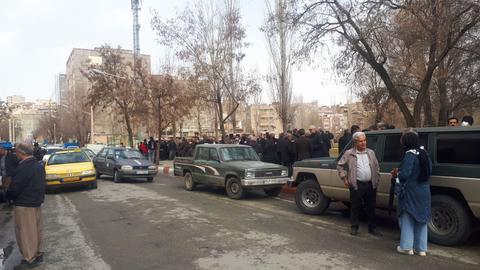
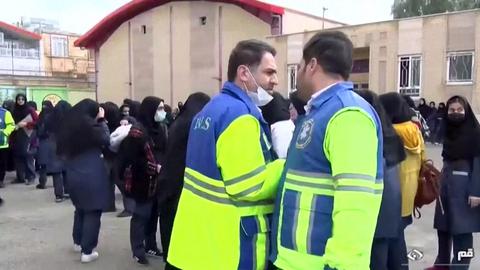
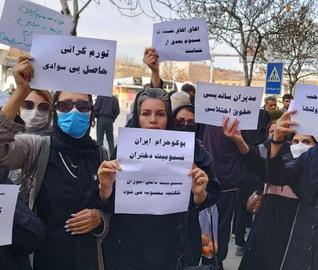






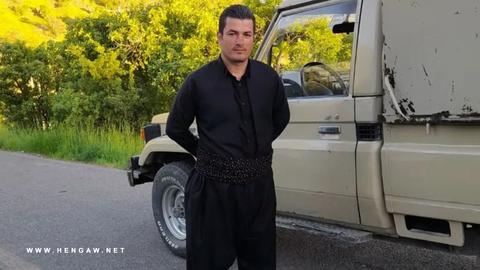


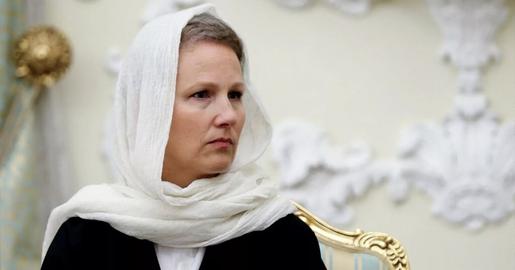









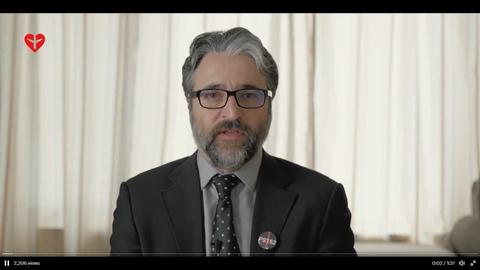
comments